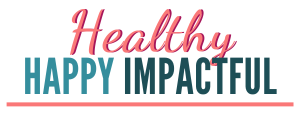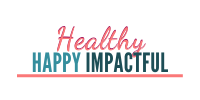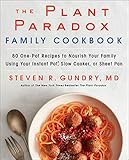7 Healthy Cookbooks That Will Change the Way You Cook
What is the best book to learn about nutrition?
As a whole, the way we cook has transformed over the last twelve years.
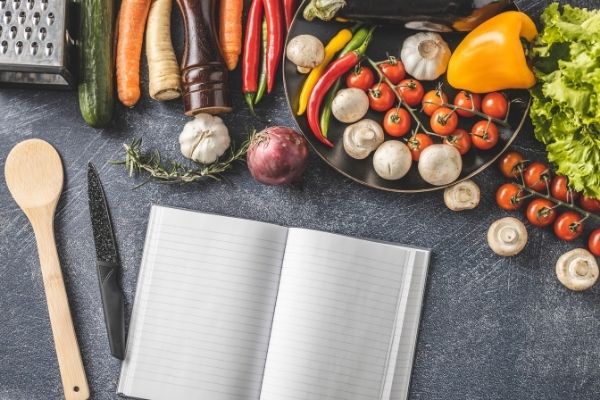
It started with ZERO knowledge on how to feed ourselves well. But, when my hubby began feeling sick at 23, there was BIG motivation to learn!
So, over the years, we’ve experimented with dozens of healthy cookbooks and health books.
These books are how I lost the baby weight after three kids. And the only reason my husband can live without medication for his intestinal disease.
This post contains affiliate links, and I may earn a commission at no cost to you. See my disclaimer for more.
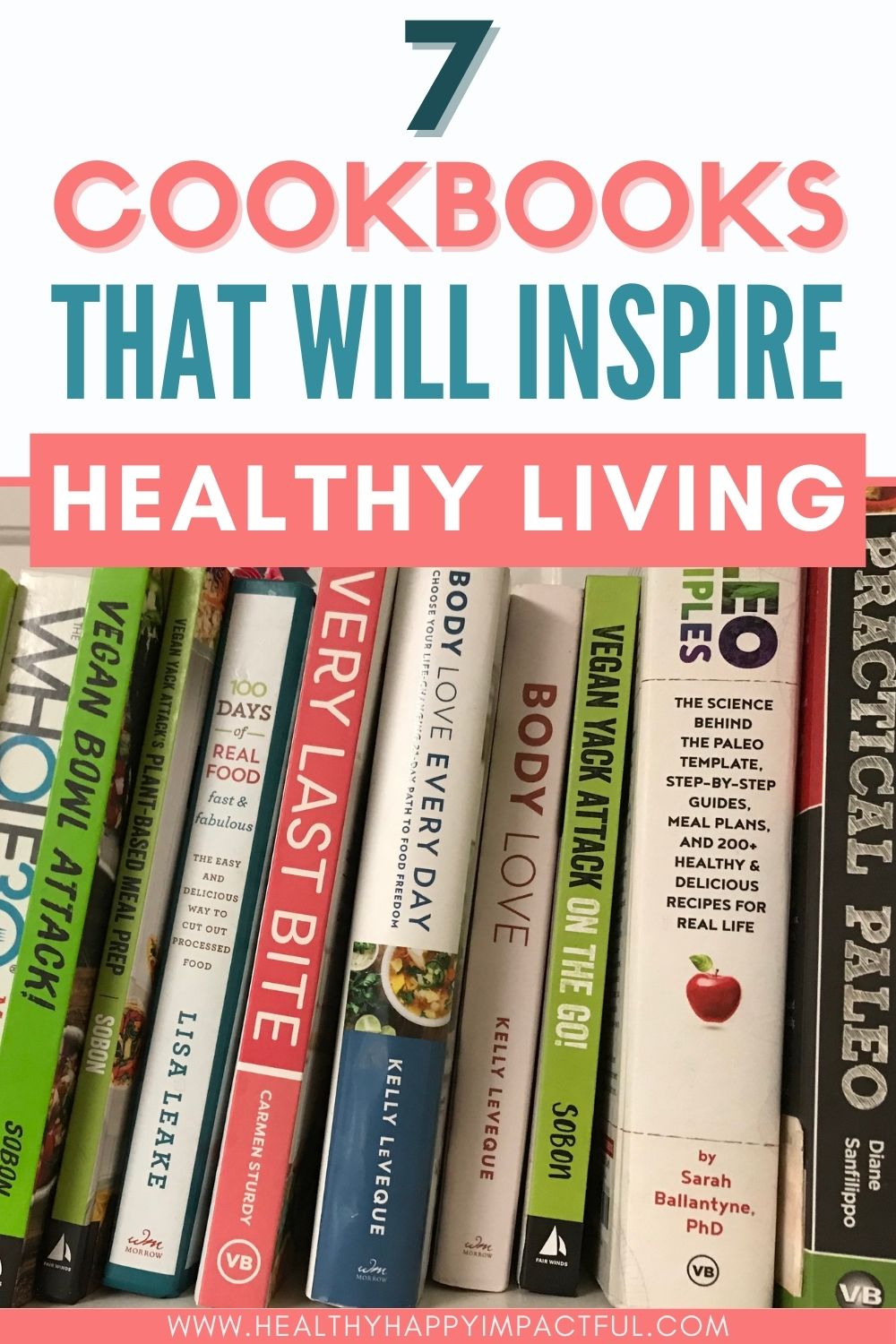
Would you like to save this idea?
Of course, we are nowhere near perfect! I still love chocolate.
But, our move towards better cooking is based entirely on learning. And that’s something I can share with others!
*Now, I do not advocate a particular “diet,” and I am not a healthcare professional. The following is my personal experience and opinion. Please take it as such!
**Also, don’t forget, you can pick these up at the library! In many cases, I borrowed them at the library first, and then liked them enough to buy them!
The Best Cookbooks & Health Books
First, this list starts at the beginning of our journey and gets more intense as we go along. I list our pros and cons for each one. That way, you get an honest idea of if it will work for you!
1. 100 Days of Real Food
My first foray into the world of healthier food brought me to the 100 Days of Real Food website. If you eat a lot of processed food now, I highly recommend her advice for your first step!
I use many of her amazing recipes for my kids still today. And over the years, I bought all three of her cookbooks (the first is my overall favorite).
Pros:
- VERY helpful for making the transition from processed to whole foods.
- Delicious recipes (we’ve rarely found one we didn’t LOVE)
- Super kid-friendly
- Helpful snack ideas (Here’s 50 healthy snack ideas for kids on the site)
- Stellar recommendations on where to buy better quality supplies.
- Ideas to make healthy eating budget-friendly!
Cons:
- Dairy and grains play a large role in her recipes. If you’re looking to reduce or cut those out, keep reading.
- Her approach is not as scientifically based as the others on this list. Therefore, I recommend a different book if you need more specific help with health issues.
*Over time, we realized that my husband does not do well with dairy or grains. So, I began exploring cookbooks that specialized in fantastic recipes without them.
2. The Whole 30 Cookbook
While we never did this challenge, I picked up the Whole 30 cookbook to see what it was all about. In truth, we were shocked by how much we liked the recipes and how well they aligned with what we needed.
Pros:
- The recipes are delicious! Some of our favorite meals come from this book!
- Fun ideas at the end of the book for date night, a tapas party, a holiday dinner, etc.
- A section of one-pot meals. So, easy cleanup!
Cons:
- For obvious reasons, there are no dessert recipes. I like dessert though!
- A bit meat-heavy in the recipes.
- I did not like the second cookbook that came from the Whole 30. That doesn’t really affect this book, but something I wanted to include.
Need a meal planner? Check out a free one HERE >>
3. Paleo Principles
This healthy cookbook is a great guide if you are new to the Paleo world (no dairy/grains).
Pros:
- Lots of science and information for your overall health. A very thorough Paleo manual.
- Great recipes for baked Paleo goods and anything requiring crust like pot pie and pizza. Our go-to cookbook for these things!
- Includes 30-day meal plans.
Cons:
- This health book is HUGE and takes up a lot of space on my pantry.
- I don’t love the format of the recipes. They are packed in tightly together on the page, and not as easy to find and use.
4. Practical Paleo
Practical Paleo is another one of the very informative health books, and we found it to be a great resource if you are suffering from different ailments.
Pros:
- It features a large section on leaky gut and different diet recommendations depending on specific problems (neurological, thyroid, blood sugar, etc.)
- How-to guides for how to chop an onion and other vegetables quickly.
- We love the “sides” recipes of this book!
- Features 30-day meal plans.
Cons:
- The recipes are more heavily focused on meat (in our opinion).
- The baked goods that I make out of this book always seem to taste “eggy.” Perhaps it’s me?
This healthy cookbook has been updated and expanded since I bought it. So, the new version may be slightly different.
5. Body Love
One word: smoothies. (And I never thought I’d say that!)
But following her smoothies for a month helped revolutionize what I put into my body at breakfast. I’ve also used her other recipes for lunch and dinner.
Pros:
- A health philosophy that doesn’t produce anxiety.
- She simplifies the science into a practical formula: It’s called the fab 4.
- A variety of recipes for different people. On the go, people that love to cook, vegans, and more.
- Excellent tips for staying healthy while busy.
- Her smoothies are filling and delicious (also super nutritious!)
- Meal plans
Cons:
- Some of the dinners have been a hit with the family, others have not.
I also love her second book: Body Love Every Day. And I talk more about the smoothies HERE.
6. Every Last Bite
Every Last Bite was recommended by a friend who also has digestive problems. It’s based on the Specific Carbohydrate Diet and features grain-free, dairy-free, and allergy-friendly recipes.
Pros:
- Lots of comfort food options that are exciting and not found in other books (the squash lasagna is a CLEAR winner in our home!)
- Absolutely delicious recipes.
- She labels the freezer friendly and quick recipes.
- Every recipe has storage tips.
Cons:
- Some of the recipes are a considerable amount of work and time-consuming.
- If you have not worked with vegetables as noodles before, there’s a learning curve while you figure it out.
- I’ve been frustrated by the number of dishes that get dirty while cooking.
I use these recipes when we want a “fancier” meal, and not often on weekdays. Here are some healthy weekday ideas!
7. The Plant Paradox
Finally, reading The Plant Paradox was eye-opening! It had a TON of solid data and science to back up the assertations. And it’s also written by a renowned cardiologist.
Now, if you want to skip all the science jargon in the original book, I recommend getting the Plant Paradox Family Cookbook. It’s our favorite because most of the recipes use the Instant Pot and are quick and easy! I got all four of his books from the library, but this is the one I bought.
Pros:
- Lots of Instant Pot and sheet pan recipes that are family-friendly!
- Less focus on dairy and meat.
- There’s a chocolate lava cake in a mug recipe that I love (and doesn’t use sugar)!
Cons:
- If you were to follow the diet exactly, it would be intense. It’s definitely the most strict nutrition plan. (Though if you’re really hurting from something, it’s worth looking into!)
- Some of the recipes have been a hit with the kids, others have not.
Related Post: 12 Delicious and Healthy Crockpot Meals
Honorable Mention:
The Vegan Yack Attack: This cookbook series is a wonderful introduction into foods without meat and dairy. The recipes are delicious and usually include a lot of veggies. I appreciated her meal prep and meals on the go books most.
To Consider With These Health Books
There you have it! As you can see, I love all of these cookbooks for different reasons!
One book isn’t going to be a one hundred percent fit. But there are many health books that can help you improve your level of health, and even save you time in the kitchen.
So, which one is a good fit for you to try?
Other healthy living posts you’ll love…
- The Big List of Meal Ideas for Your Family – A huge list of healthy dinners!
- Easy Steps to Be Healthier This Year – Small changes equal big results.
- 11 Healthy But Delicious Green Salads – creative ways to mix up your greens!
